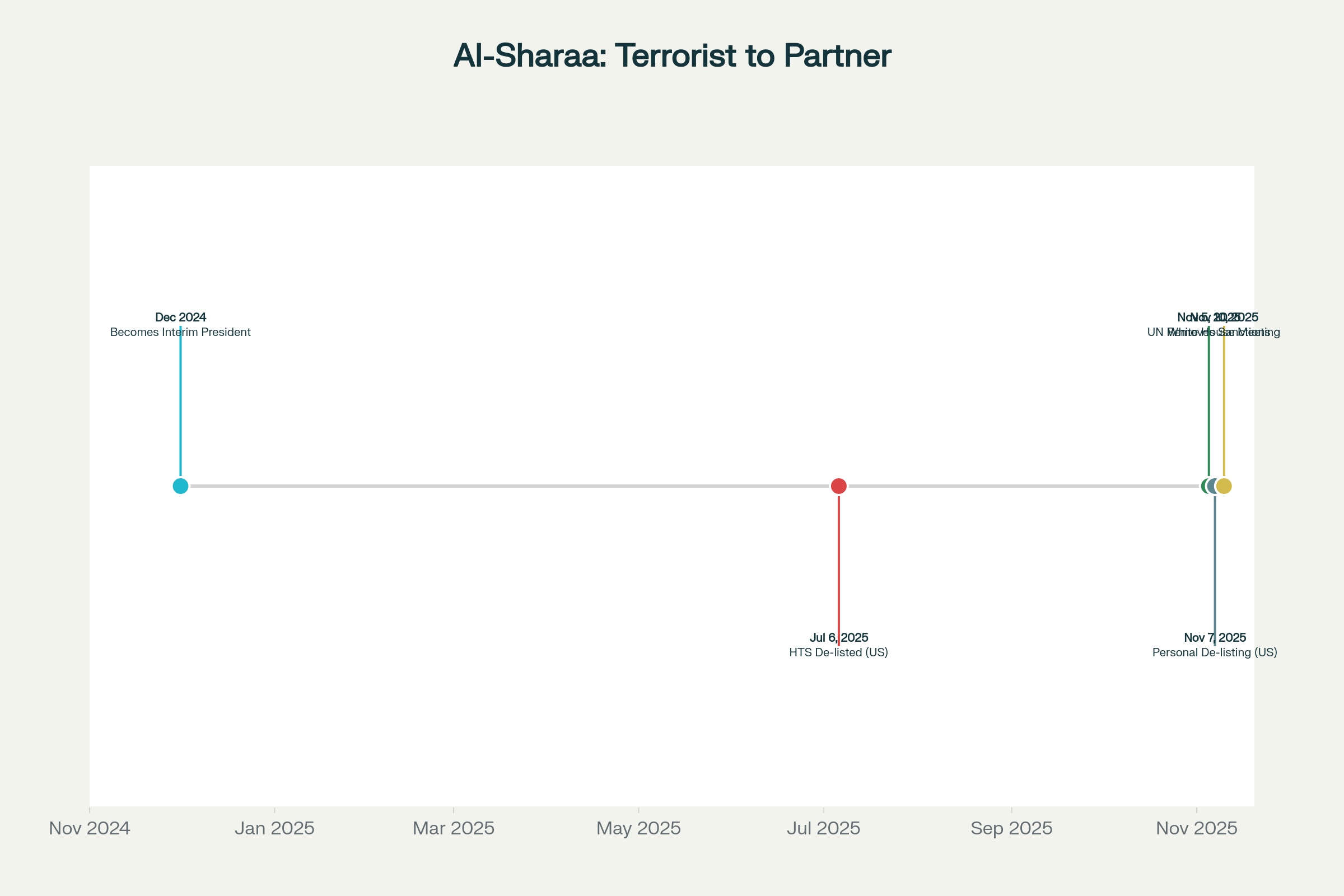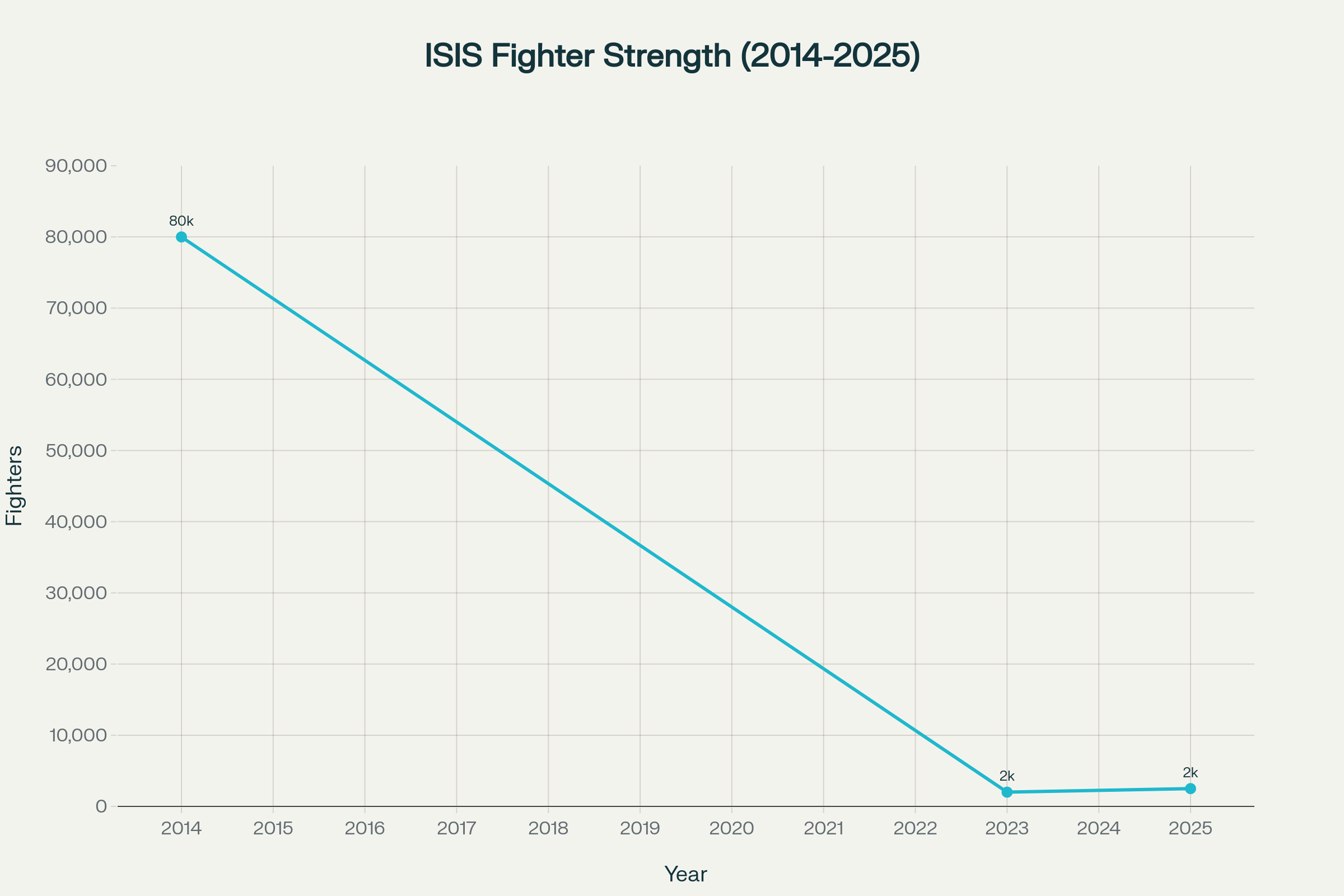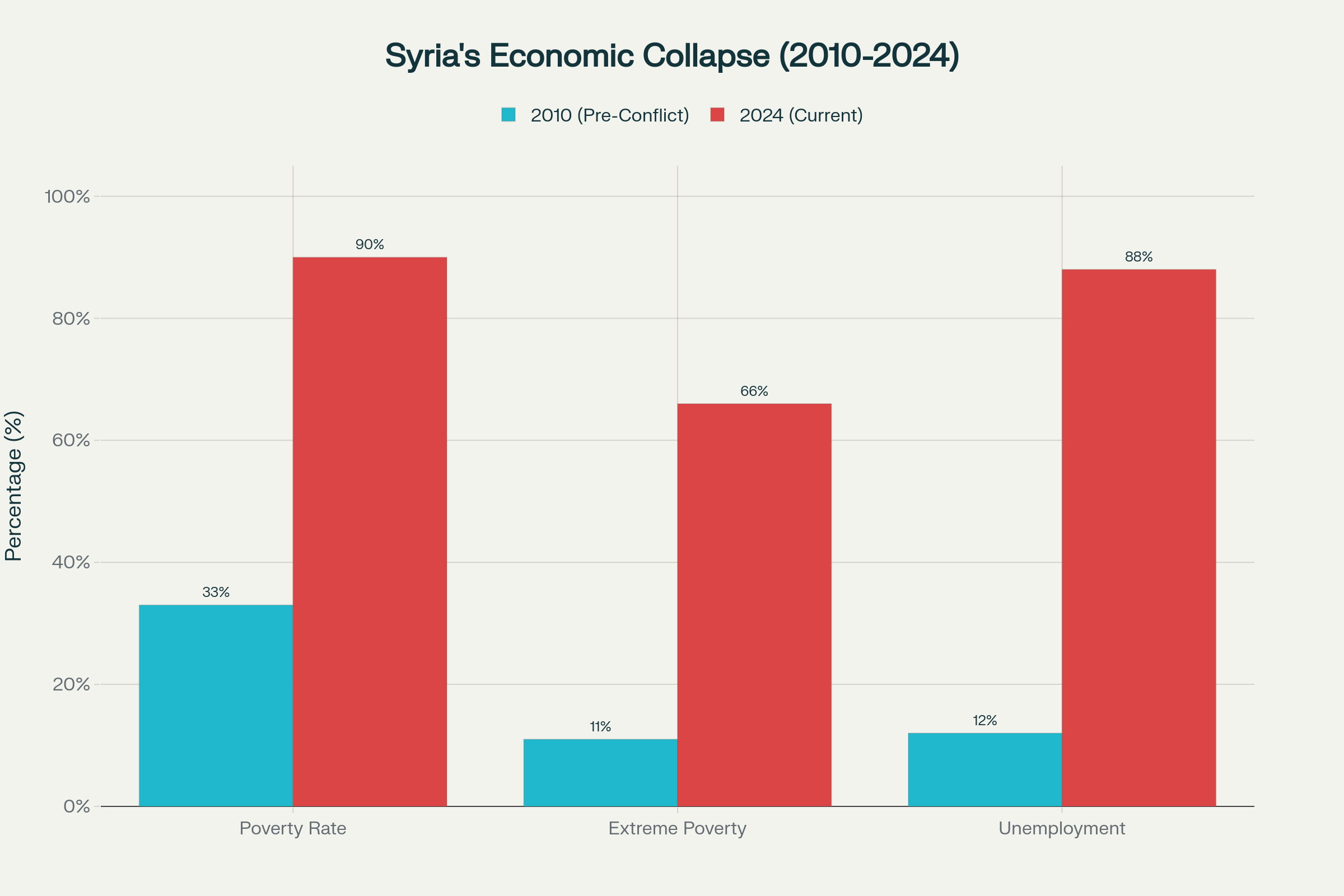Key Highlights:
- Syria Joins US-Led Coalition as 90th member following unprecedented White House summit between President Trump and Syrian President Ahmed al-Sharaa on November 10, 2025
- Trump administration suspends Caesar Act sanctions for 180 days and authorizes Syria to reopen Washington embassy after diplomatic relations were severed in 2012
- Former jihadist leader al-Sharaa completes remarkable transformation from designated terrorist with $10 million bounty to recognized US diplomatic partner
Opening Overview
Syria Joins US-Led Coalition against the Islamic State group following a landmark White House meeting between President Donald Trump and Syrian President Ahmed al-Sharaa that fundamentally reshapes American engagement in the Middle East. The November 10, 2025 announcement represents an extraordinary diplomatic reversal, as Syria Joins US-Led Coalition just days after al-Sharaa was removed from the US Treasury Department’s “Specially Designated Global Terrorist” list. As the 90th member nation, Syria Joins US-Led Coalition with commitments to cooperate in counterterrorism operations targeting remaining Islamic State cells across Syria and Iraq.
The Trump administration simultaneously announced comprehensive sanctions relief, including a 180-day suspension of the Caesar Syria Civilian Protection Act and authorization for Syria to reopen its embassy in Washington, measures designed to facilitate economic reconstruction after fourteen years of devastating conflict. This marks the first visit by a Syrian head of state to the White House since Syria gained independence from France in 1946, signaling a complete recalibration of US-Syria relations that few analysts predicted possible.
From Terrorist Designation to White House Guest
Ahmed al-Sharaa’s journey from jihadist militant to diplomatic partner represents one of the most remarkable political transformations in recent Middle Eastern history. Until July 2025, al-Sharaa led Hayat Tahrir al-Sham (HTS), an armed Islamist organization officially designated as a terrorist group by the United States, with a $10 million bounty on his head. Syria Joins US-Led Coalition after the State Department revoked HTS’s Foreign Terrorist Organization designation on July 6, 2025, following al-Sharaa’s ascent to interim Syrian president when rebel forces toppled Bashar al-Assad’s regime in December 2024.
The UN Security Council lifted terror-related sanctions on al-Sharaa and Interior Minister Anas Khattab on November 5, 2025, removing them from sanctions measures targeting members and supporters of ISIL and Al-Qaeda. Just three days before Syria Joins US-Led Coalition at the White House meeting, the US Treasury Department removed al-Sharaa from its Specially Designated Global Terrorist list on November 7, 2025, completing his transition from wanted militant to recognized head of state.

Timeline documenting Ahmed al-Sharaa’s rapid political transformation from designated terrorist leader to recognized head of state within eleven months
President Trump has repeatedly expressed support for al-Sharaa despite his controversial background, telling reporters that “if you didn’t have a rough past, you wouldn’t have a chance” when asked about the Syrian leader’s history with Al-Qaeda. Al-Sharaa previously led a branch of Al-Qaeda, the organization responsible for the September 11, 2001 attacks, before breaking ties and forming HTS. The Syrian president emphasized during a Fox News interview that he and Trump focused on “the present and the future” rather than discussing his militant past. Syria Joins US-Led Coalition with al-Sharaa positioning himself as a committed counterterrorism partner, a narrative reinforced by Syrian security forces detaining more than 70 alleged ISIS members just hours before his arrival in Washington.
Coalition Membership and Counterterrorism Commitments
Syria Joins US-Led Coalition as the 90th member of the Global Coalition to Counter the Islamic State of Iraq and the Levant, committing to political cooperation in eliminating remaining ISIS elements across the region. Syrian Information Minister Hamza al-Mustafa clarified that Syria’s initial declaration involves “political cooperation” with the counter-ISIS coalition and does not yet include “military components,” with exact operational terms still under discussion. The Global Coalition, which began operations in 2014, comprises 89 governments and international institutions working across five lines of effort: military operations, stemming foreign terrorist fighter flows, cutting ISIS financing, combating extremist messaging, and stabilizing liberated communities.
Syria Joins US-Led Coalition addressing a persistent and escalating security threat, as ISIS maintains between 1,500 and 3,000 active fighters in Syria and Iraq as of mid-2025, down from a peak of 80,000 militants in 2014. US estimates indicate more than 2,500 ISIS operatives continue operations in Syria and Iraq, while thousands of battle-hardened militants remain imprisoned in Syrian detention facilities, posing serious security risks. ISIS attacks in Syria escalated dramatically from approximately 200 incidents causing 516 deaths in 2023 to around 700 attacks resulting in over 750 casualties in 2024.

ISIS operational strength has declined dramatically from 80,000 fighters at peak in 2014 to approximately 2,500 in 2025, though recent upticks signal renewed threats
The Syrian Ministry of Interior launched a major country-wide counter-ISIS operation on November 8, 2025, conducting 61 raids targeting ISIS logistics and leadership networks across eight provinces two days before Syria Joins US-Led Coalition. Syrian security officials revealed to Reuters that ISIS attempted to assassinate President al-Sharaa twice in recent months, underscoring the ongoing threat posed by the extremist group.
Over 10,000 ISIS fighters remain imprisoned in 28 detention facilities controlled by the Syrian Democratic Forces in northeastern Syria, with nearly 60,000 family members held in associated camps, creating what security experts describe as “ticking time bombs” vulnerable to orchestrated prison breaks. The United States and Syria have conducted at least three joint counter-ISIS operations and shared intelligence related to ISIS since July 2025, establishing operational cooperation months before Syria Joins US-Led Coalition. Syria Joins US-Led Coalition at a critical juncture, as sectarian violence, ongoing hostilities between Kurdish forces and Islamist factions, and the security vacuum following Assad’s fall have created conditions conducive to ISIS resurgence.
Comprehensive Sanctions Relief and Economic Reconstruction
The Trump administration announced sweeping sanctions relief concurrent with Syria Joins US-Led Coalition announcement, implementing a 180-day suspension of the Caesar Syria Civilian Protection Act alongside authorization for Syria to reopen its Washington embassy. The Caesar Act, enacted in 2019, imposed mandatory sanctions on anyone providing support to the Syrian government, supporting Syrian oil and gas industries, exporting aircraft or military equipment to Syria, or providing construction and engineering services to the government. This November 9, 2025 suspension replaces a previous 180-day waiver issued on May 23, 2025, demonstrating the administration’s “commitment to continued sanctions relief for Syria” according to the Treasury Department’s Office of Foreign Assets Control.
President Trump initiated comprehensive sanctions removal through an executive order on June 30, 2025, which revoked six foundational executive orders underlying the Syria sanctions program and terminated the national emergency declared in 2004. Syria Joins US-Led Coalition after the executive order removed US sanctions on Syria effective July 1, 2025, while maintaining targeted sanctions on Bashar al-Assad and his associates, human rights abusers, Captagon drug traffickers, persons linked to chemical weapons proliferation, ISIS, Al-Qaeda affiliates, and Iranian proxies. Secretary of State Marco Rubio emphasized that the suspension of Caesar Act sanctions “supports Syria’s efforts to rebuild its economy, restore ties with foreign partners, and foster prosperity and peace for all its citizens”.
However, permanent repeal of the Caesar Act requires Congressional action, leaving uncertainty about long-term sanctions relief. The economic context for sanctions relief is dire, as fourteen years of conflict have devastated Syria’s economy with GDP cumulatively contracting by more than 50% since 2010. Syria’s Gross National Income per capita fell to just $830 in 2024, well below the international threshold for low-income countries, while extreme poverty now affects one in four Syrians with two-thirds living below the lower middle-income poverty line.

Syria’s economic devastation from 2010 to 2024 shows dramatic increases across all poverty and unemployment indicators during the fourteen-year conflict
The World Bank projects Syria’s GDP will grow modestly by 1% in 2025 following a 1.5% contraction in 2024, though progress remains constrained by frozen assets, restricted international banking access, and suspended foreign assistance. Unemployment reached approximately 88% in 2024, with over 90% of Syria’s population living below the poverty line according to relief organizations. The Caesar Act had sealed Syria off from the international banking system and blocked new investment and transactions in US dollars, creating severe shortages in basic goods and accelerating currency collapse. Syria Joins US-Led Coalition hoping that sanctions relief will attract foreign investment critical for reconstruction, as the country requires “substantial international” support according to the International Monetary Fund.
| Global Coalition Member Categories | Number | Region/Type |
|---|---|---|
| NATO Member States | 30 | North America, Europe |
| Middle East Partners | 12 | Arab League nations, Israel |
| Asia-Pacific Nations | 8 | Including Australia, Japan |
| International Organizations | 4 | UN, EU, Arab League, Interpol |
| Total Members (Before Syria) | 89 | Six Continents |
| Total Members (After Syria) | 90 | Six Continents |
Regional Implications and Future Challenges
Syria Joins US-Led Coalition triggering significant geopolitical realignments across the Middle East, particularly affecting Iranian influence and Kurdish autonomy in northeastern Syria. Following the White House meeting, US, Syrian, and Turkish foreign ministers convened “at President Trump’s direction” to discuss integrating the Syrian Democratic Forces (SDF) into the new Syrian army and fully implementing the March 10, 2025 agreement between the SDF and the Syrian government. This trilateral coordination addresses one of the region’s most volatile flashpoints, as ongoing hostilities between Kurdish forces and Turkish-backed Islamist factions have destabilized northeastern Syria and weakened security measures around ISIS detention facilities.
President Trump expressed confidence in al-Sharaa’s leadership, stating “we want to see Syria become a country that’s very successful” and pledging to “do everything we can to make Syria successful” during Oval Office remarks. However, Syria Joins US-Led Coalition while al-Sharaa’s rule faces significant challenges, including killings of members of Syria’s Alawite minority and deadly violence between Sunni Bedouin fighters and Druze militias. Between March 6 and March 12, 2025, security forces and affiliated elements of the new government massacred an estimated 800 to 1,500 civilians, predominantly from the Alawite minority, intensifying sectarian tensions across coastal regions.
Al-Sharaa has vowed to root out security force members who have committed human rights violations, though international observers remain skeptical about accountability mechanisms. Syria Joins US-Led Coalition with the Trump administration maintaining conditional engagement based on Syrian government actions, including “taking steps toward normalizing ties with Israel” and addressing “foreign terrorists” and militant groups operating in the country. The World Bank approved a $146 million grant on June 25, 2025, aimed at bolstering electricity supplies and facilitating economic recovery, while oil-rich nations Saudi Arabia and Qatar settled Syria’s nearly $15 billion debt to the World Bank.
The International Monetary Fund is developing a roadmap for Syria’s policy and capacity-building priorities for key economic institutions, including the finance ministry, central bank, and statistics agency. Syria’s path forward remains uncertain, as securing oil supply presents a major challenge with disrupted imports from Iran potentially raising fuel prices and inflation. Yet Syria Joins US-Led Coalition with international financial institutions and regional powers demonstrating unprecedented willingness to support reconstruction, contingent on sustained counterterrorism cooperation and progress toward political stability.
Final Perspective
Syria Joins US-Led Coalition in a watershed moment for Middle Eastern geopolitics and US foreign policy, transforming a nation isolated by sanctions and diplomatic rupture into a recognized counterterrorism partner on November 10, 2025. The historic White House meeting between President Trump and President al-Sharaa, coupled with comprehensive sanctions relief and embassy restoration, signals American willingness to engage pragmatically with a government led by a former Al-Qaeda commander. Syria Joins US-Led Coalition confronting formidable challenges, including persistent ISIS threats, sectarian violence, economic devastation, and international skepticism about a transitional government’s commitment to human rights and regional stability.
The coming months will prove critical as Syria Joins US-Led Coalition and implements counterterrorism commitments, integrates Kurdish forces into national security structures, and demonstrates tangible progress toward inclusive governance. President Trump’s decision to embrace al-Sharaa despite his controversial past reflects a transactional approach prioritizing immediate security objectives over ideological concerns, a calculation that assumes shared interests in defeating ISIS outweigh risks associated with empowering former jihadists. Syria Joins US-Led Coalition with the international community watching closely, aware that failure to capitalize on this diplomatic opening could squander a rare opportunity to stabilize a pivotal nation and prevent ISIS resurgence in the region’s most volatile theater.


